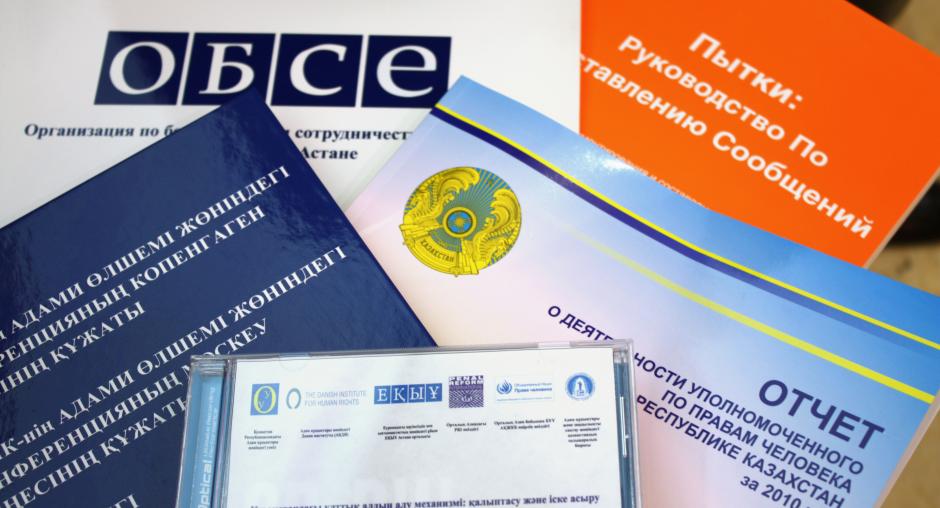OSCE Centre promotes high-level dialogue on strengthening the role of the Ombudsman in Kazakhstan in preventing torture

ASTANA, 25 March 2011 – An OSCE-supported conference on establishing and implementing a National Preventive Mechanism (NPM) in Kazakhstan concluded in Astana today.
Kazakhstan ratified the Optional Protocol to the UN Convention against Torture in October 2008. According to this international instrument, State Parties are to establish national preventive mechanisms - independent monitoring bodies - for all places of deprivation of liberty.
The event was organized by the OSCE Centre in Astana in co-operation with the Office of the Commissioner for Human Rights in the Republic of Kazakhstan (Ombudsman), the Danish Institute for Human Rights, the UN Office of the High Commissioner for Human Rights (UNOHCHR) in Central Asia, Penal Reform International for Central Asia, and the Bureau for Human Rights and Rule of Law.
It brought together more than 90 participants from the parliament, the presidential administration, government agencies, non-governmental and international organizations and the media. The conference’s high-level dialogue focused on existing NPM models and how they could be applied in Kazakhstan, as well as interaction between the Ombudsman and public oversight commissions in the NPM framework. International experts shared good practices in this field and commented on the latest NPM draft law developed by the Justice Ministry.
Ambassador Askar Shakirov, the Commissioner for Human Rights in the Republic of Kazakhstan, said: “Today’s conference continues the discussions on developing a national preventive mechanism for Kazakhstan. A foundation has already been laid in this regard, including the establishment of public oversight commissions, the creation of a working group to detect torture cases, and the introduction of legislation for the public oversight of detention facilities and other specialized institutions.”
Armen Harutyunyan, Regional UNOHCHR Representative and the former Ombudsman of Armenia, said: “I am very pleased to have been given this opportunity to speak on such an important issue as the NPM, which is a component of the United Nation’s Universal Periodic Review on Kazakhstan.”
Ambassador Alexandre Keltchewsky, the Head of the OSCE Centre in Astana, said: “Today the Government of Kazakhstan faces the challenging task of establishing a national preventive mechanism. We share the Ombudsman's view that such a structure must be endowed with the requisite authority and independence, and have at its disposal all instruments required to effectively carry out its functions.”
The conference is part of a project developed by the OSCE Centre in co-operation with the Danish Institute for Human Rights and the Ombudsman Office in Kazakhstan to support the National Human Rights Commissioner (Ombudsman) of the Republic of Kazakhstan.
